Dog Vomiting and Diarrhea
Understanding Dog Vomiting, Diarrhea, and Clear Liquid Pooping in French Bulldogs
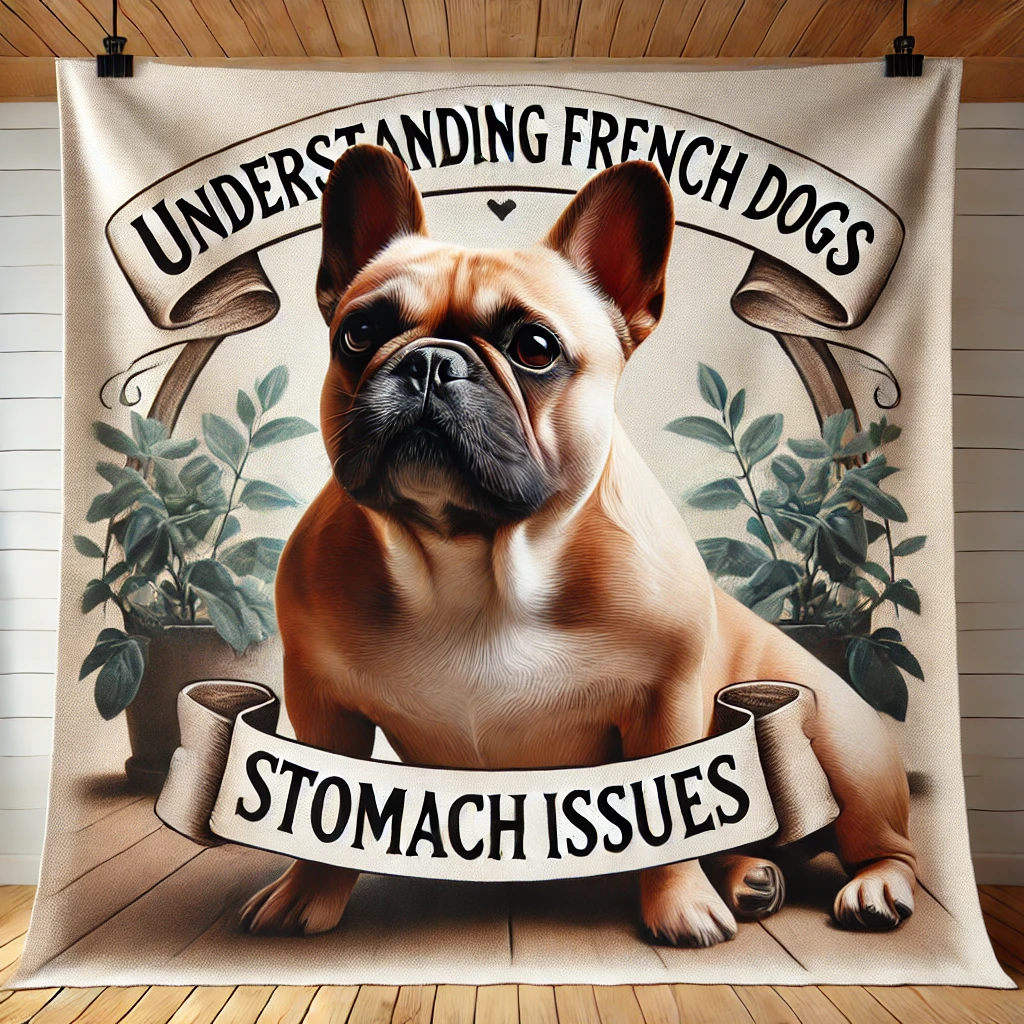
Introduction
So, your adorable French Bulldog has suddenly turned into a puking, pooping machine? Fear not! We’ve got you covered. From dog vomiting after drinking water to figuring out why your pup is pooping clear liquid, we’re diving into the messy world of Frenchie digestive issues.
As a French Bulldog owner, it’s natural to feel worried when your furry friend isn’t feeling well. Whether it’s a bout of vomiting, a case of diarrhea, or the mysterious appearance of clear liquid poop, these symptoms can be alarming. This guide aims to help you understand what might be causing these issues in your Frenchie, how to manage them, and when it’s time to consult your vet. With the right information and a proactive approach, you can ensure your French Bulldog stays happy and healthy.
Section 1: Understanding Dog Vomiting
Why Does My Frenchie Keep Throwing Up?
Oh, the joys of owning a Frenchie! They’re cute, cuddly, and sometimes a little bit puke-y. If your French Bulldog is channeling their inner volcano, don’t panic. French Bulldogs are known for their sensitive tummies and, unfortunately, their talent for dramatic regurgitation.
So, why does my Frenchie keep throwing up? Well, there are a few common culprits:
- Dietary Indiscretion: Fancy term for “Your dog ate something they shouldn’t have.” Frenchies are notorious for their curious appetites.
- Allergies: Just like us, our canine pals can be allergic to certain foods or environmental factors.
- Infections: Bacterial or viral infections can upset your Frenchie’s stomach.
For our squishy-faced friends, there are also breed-specific issues to consider. The shape of their head (brachycephalic, if you wanna get fancy) can make them more prone to certain digestive problems. If your pup is throwing up after eating or drinking, it might be because they’re gulping down everything too quickly. Slow down there, Speedy Gonzales!
How to Tackle Frenchie Tummy Troubles
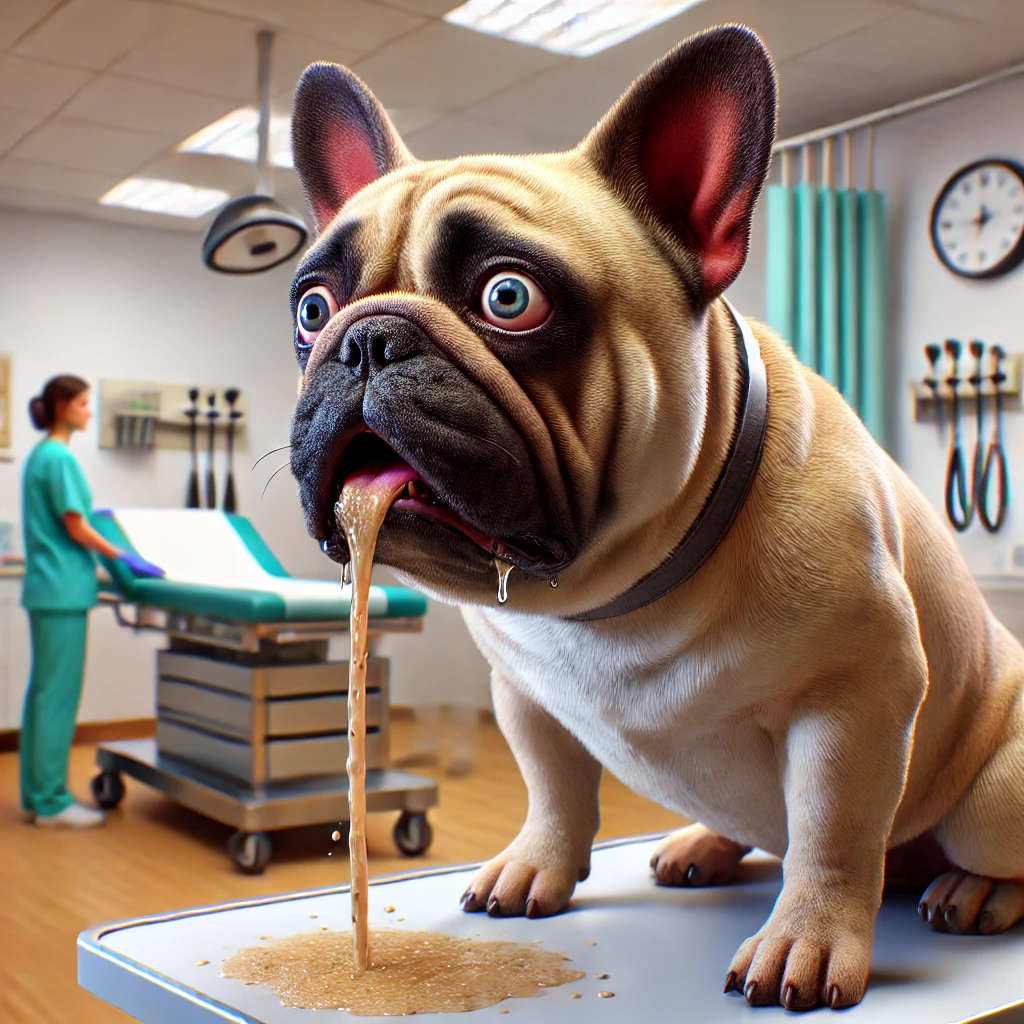
Dietary Indiscretion:
- Prevention Tips:
- Keep trash cans securely closed.
- Avoid giving your Frenchie table scraps.
- Provide appropriate chew toys and treats.
- Immediate Actions:
- Remove any suspected harmful items.
- Monitor for symptoms like vomiting or diarrhea.
- Offer bland food (boiled chicken and rice) for 24-48 hours.
Allergies:
- Identification:
- Observe if symptoms worsen after certain foods.
- Watch for skin reactions or excessive scratching.
- Management:
- Consult your vet for allergy testing.
- Switch to hypoallergenic dog food.
- Use air purifiers to minimize environmental allergens.
Infections:
- Symptoms to Watch For:
- Frequent vomiting or diarrhea.
- Lethargy and loss of appetite.
- Fever or unusual behavior.
- Steps to Take:
- Keep your Frenchie hydrated with clean, fresh water.
- Seek veterinary attention for diagnosis and treatment.
- Administer prescribed medications as directed.
Dealing with a French Bulldog that’s a bit too enthusiastic about vomiting or having diarrhea is no fun, but with the right knowledge, you can handle it like a pro. Monitor their symptoms, keep them hydrated, and don’t hesitate to seek veterinary advice when needed. Remember, a healthy diet and regular check-ups can go a long way in keeping your furry friend feeling their best.
Dog Vomiting After Drinking Water and Not Eating
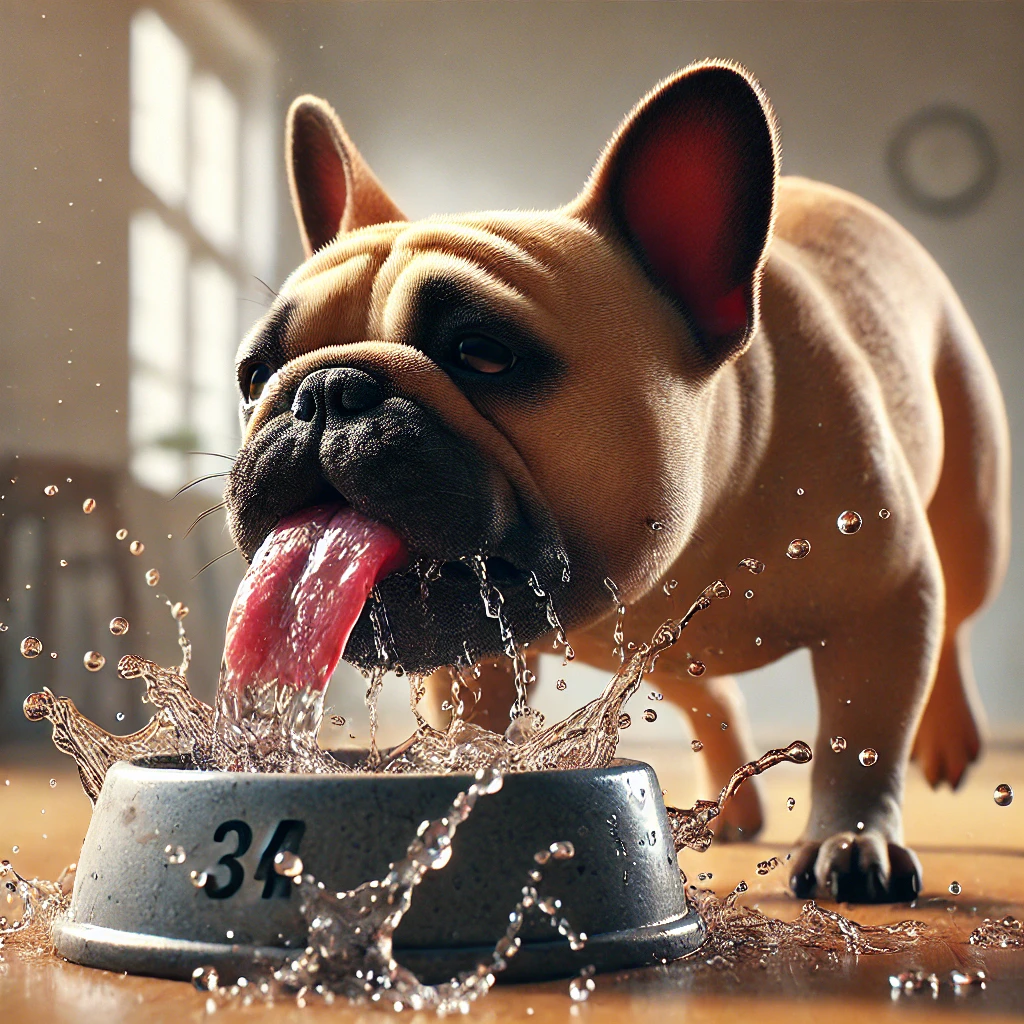
Ever see your dog chug water like it’s an Olympic sport, only to see it come back up like a geyser? It’s a common sight for many pet parents. When your dog vomits after drinking water and not eating, it could be because:
- Esophageal Issues: Some dogs have a condition where their esophagus doesn’t move food and water down to the stomach properly.
- Drinking Too Quickly: The excitement of water! Try slowing them down with a special water bowl designed to prevent gulping.
To prevent this watery mess, you can use a slow-feed bowl or simply offer smaller amounts of water more frequently. And if the vomiting continues, it’s best to check with your vet. There might be an underlying issue that needs addressing.
Dog Throwing Up Clear Liquid
Ah, the mysterious dog throwing up clear liquid. What could it mean? Often, it’s just stomach acid or a sign that their tummy is empty. Here’s how to manage this:
- Small, Frequent Meals: Avoid those hunger pangs by feeding your pup smaller portions throughout the day.
- Vet Check-Up: If this clear-liquid vomiting becomes a regular occurrence, it’s time for a professional opinion.
Section 2: French Bulldog Diarrhea
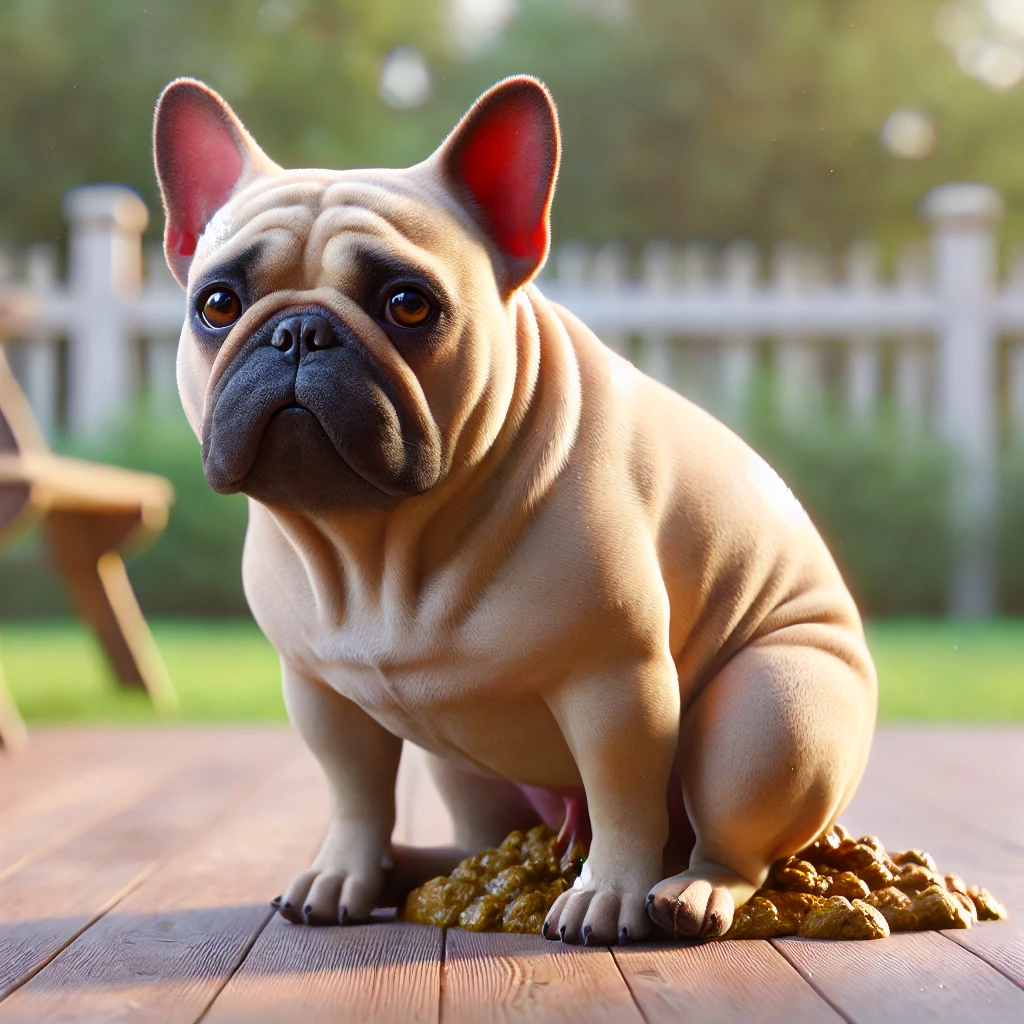
Frenchie Has Diarrhea
When your Frenchie has diarrhea, it’s not just unpleasant; it’s a cry for help from their digestive system. Common triggers include:
- Food Allergies: Maybe that new treat doesn’t agree with their royal palate.
- Infections: Bacterial or viral, these can really mess with your pup’s gut.
- Stress: Yes, dogs get stressed too. A new environment or a change in routine can upset their tummy.
First things first: keep them hydrated! Offer a bland diet of boiled chicken and rice for a day or two. If diarrhea persists, a vet visit is in order.
Looking for more ways to keep your furry friend healthy and happy? Dive into “The A-to-Z Cookbook for Healthy Homemade Dog Food: 101 Quick & Easy DIY Dog Meals” by Darren Neilson. Tailored recipes for all dog sizes, including those with special dietary needs, will transform mealtime into a joyful, nourishing experience.
Whether your dog is thriving or dealing with health issues, our easy-to-follow recipes and nutritional plans ensure every meal supports their well-being. Say goodbye to guesswork and hello to a healthier, happier dog!
Dog Diarrhea Only at Night
It’s midnight, and your dog is urgently dragging you out of bed. Dog diarrhea only at night is a puzzler. Here are some potential causes:
- Feeding Schedule: A late dinner might be the culprit. Try feeding them earlier.
- Nocturnal Anxiety: Yes, some dogs get night-time jitters.
Adjust their meal times and create a calm bedtime routine. If the nighttime chaos continues, consult your vet for further insights.
Dog Has Diarrhea but Acting Normal
Your dog has diarrhea but is acting like their usual, playful self. What’s going on? When a dog has diarrhea but acting normal, it might be a minor dietary indiscretion. Monitor the situation closely:
- Duration: If it’s just a day or two, it might not be serious.
- Other Symptoms: If they start showing other signs of illness, it’s time for the vet.
Section 3: Dog Pooping Clear Liquid
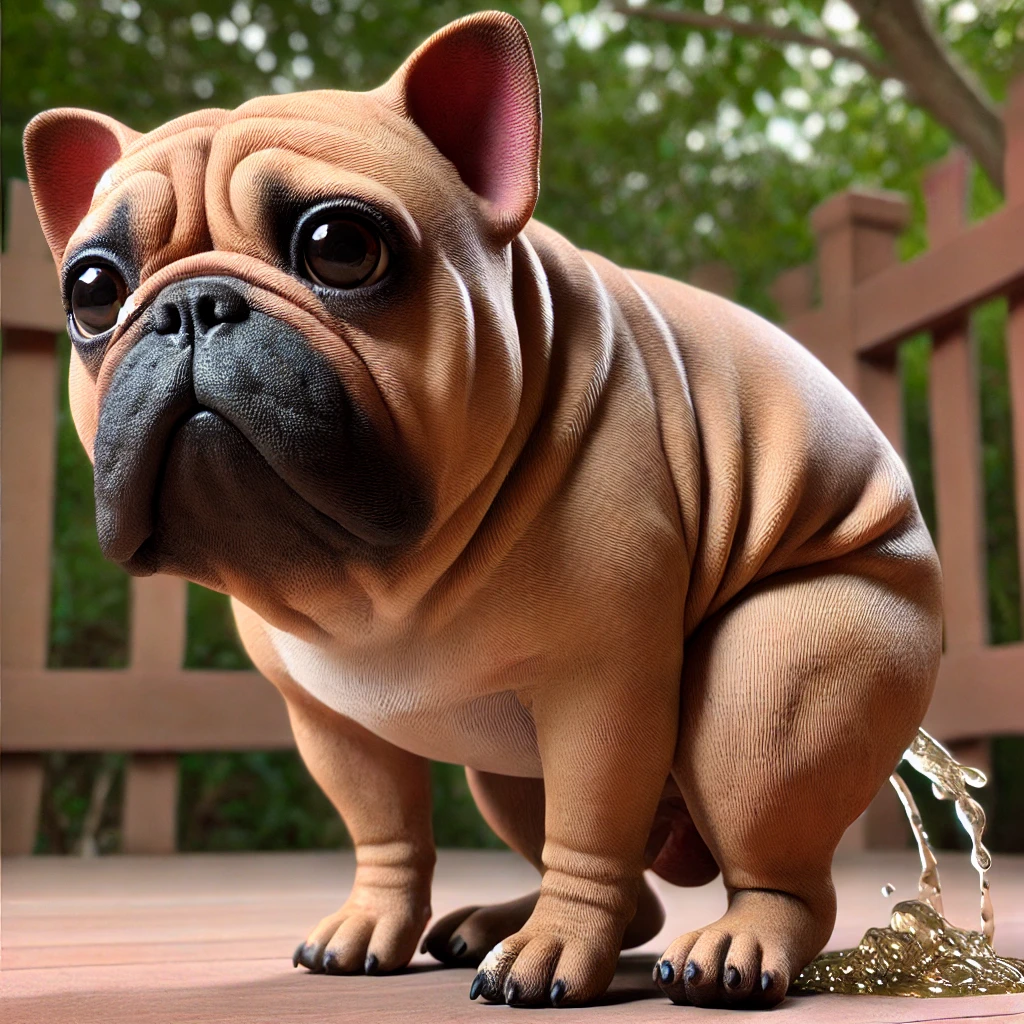
Why Is My Dog Pooping Clear Liquid?
So, your dog is pooping clear liquid. Sounds alarming, right? This often indicates mucus in the stool, signaling gastrointestinal upset. Possible causes include:
- Dietary Issues: Maybe something they ate isn’t sitting right.
- Intestinal Parasites: Those pesky worms can cause quite the ruckus.
When you notice your dog pooping clear liquid, it’s essential to keep a close eye on their overall behavior and symptoms. Sometimes, it’s just a one-off incident, but other times it might be a sign of a more significant issue that needs addressing. For more insights on maintaining your dog’s health, check out “The A-to-Z Cookbook for Healthy Homemade Dog Food: 101 Quick & Easy DIY Dog Meals.”
Dog Vomiting and Diarrhea
Buster’s Garden Adventure
Let’s lighten things up with a little story about Buster, my friend’s mischievous Frenchie. One sunny afternoon, Buster decided that the backyard garden was a gourmet buffet. He sampled everything from the roses to the tulips, and by evening, his tummy was making noises that could rival a thunderstorm.

The next morning, Buster’s owner found a not-so-pleasant surprise: clear liquid poop. Panicked, they rushed to the vet, only to be reassured that Buster had a mild gastrointestinal upset likely caused by his impromptu floral feast. After a couple of days on a bland diet and some rest, Buster was back to his usual, flower-nibbling self. The vet’s parting advice? Keep Buster away from the garden or invest in a sturdy fence! Stories like Buster’s are why I wrote “The A-to-Z Cookbook for Healthy Homemade Dog Food,” to help prevent these mishaps with the right diet.
Managing and Preventing Clear Liquid Pooping
If your dog is pooping clear liquid, here are some steps to help manage and prevent it:
- Dietary Adjustments: Ensure your dog’s diet is balanced and free from sudden changes. Gradually introduce new foods to prevent digestive upsets.
- Hydration: Keep your dog well-hydrated. Offer fresh water regularly and consider adding electrolyte solutions if recommended by your vet.
- Regular Deworming: Stick to a regular deworming schedule to keep those pesky parasites at bay.
- Veterinary Check-Ups: If the clear liquid pooping persists, consult your vet. They can conduct tests to rule out any serious conditions and provide appropriate treatment.
Final Thoughts: Handling Gastrointestinal Upset in Dogs
Dealing with a French Bulldog that’s a bit too enthusiastic about vomiting or having diarrhea is no fun, but with the right knowledge, you can handle it like a pro. Monitor their symptoms, keep them hydrated, and don’t hesitate to seek veterinary advice when needed. Remember, a healthy diet and regular check-ups can go a long way in keeping your furry friend feeling their best. Dive deeper into creating a balanced diet for your dog in my book, “The A-to-Z Cookbook for Healthy Homemade Dog Food: 101 Quick & Easy DIY Dog Meals.”
Section 4: Specific Concerns for French Bulldogs
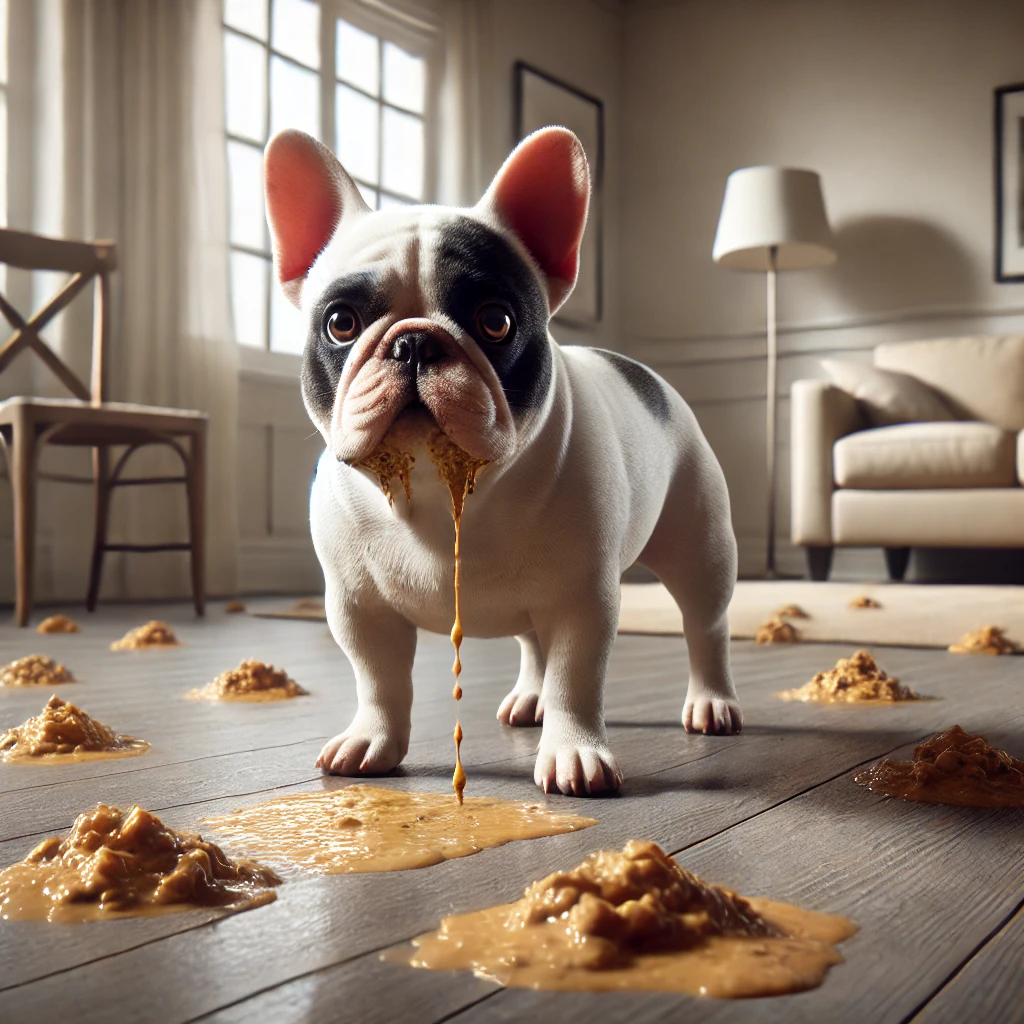
Why Does My Frenchie Keep Throwing Up?
Why does my Frenchie keep throwing up? Our adorable French Bulldogs are special in many ways, including their digestive quirks. Their brachycephalic structure makes them more prone to vomiting. Managing their health involves:
- Regular Vet Visits: Stay on top of their health with routine check-ups.
- Appropriate Diet: Feed them high-quality, easily digestible food to avoid tummy troubles.
How to Stop My Frenchie from Having Diarrhea
Diarrhea prevention is better than cure. Here’s how to stop my Frenchie from having diarrhea:
- Consistent Diet: Stick to what works. Avoid giving them table scraps or sudden changes in diet.
- Probiotics: These can help maintain a healthy gut flora. Consider using Petandim, which contains Protandim, known for its benefits in supporting gut health and overall well-being.
- Medication: If prescribed by a vet, follow their instructions to the letter.
Conclusion
Dealing with a French Bulldog that’s prone to vomiting or diarrhea can be challenging, but with the right knowledge, you can manage it effectively. Monitor their symptoms, keep them hydrated, and don’t hesitate to seek veterinary advice when needed. Remember, a healthy diet and regular check-ups can go a long way in keeping your furry friend feeling their best.
Additionally, incorporating probiotics like Petandim into your dog’s diet can be incredibly beneficial. Petandim contains Protandim, which is excellent for gut health and can help manage digestive issues. For more tips on maintaining your dog’s health, check out my book, “The A-to-Z Cookbook for Healthy Homemade Dog Food: 101 Quick & Easy DIY Dog Meals.”

Thank You for reading our blog post.
Dog Vomiting and Diarrhea
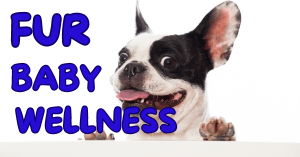
Links
People Also Ask
Q: What should I do if my dog keeps vomiting after drinking water?
A: Slow down their drinking, and consult your vet if it persists.
Q: How can I prevent my Frenchie from having diarrhea?
A: Stick to a consistent diet and avoid giving them human food.
Q: Is it normal for my dog to poop clear liquid?
A: It can indicate gastrointestinal upset. Monitor their diet and see a vet if it continues.
Q: What are common dietary triggers for vomiting in dogs?
A: New foods, table scraps, and certain allergens can be triggers.
Q: When should I take my dog to the vet for vomiting or diarrhea?
A: If symptoms persist beyond a day or two, or if they show other signs of illness.
Q: Can probiotics help my dog with digestive issues?
A: Yes, probiotics can help maintain a healthy gut flora. Petandim, which contains Protandim, is particularly effective for supporting gut health.
Q: How often should I deworm my dog to prevent digestive issues?
A: Regular deworming is essential. Follow your vet’s recommendations, which typically suggest deworming every three to six months.
Q: What signs indicate that my dog’s vomiting is serious?
A: Persistent vomiting, blood in vomit, lethargy, or other signs of illness indicate that your dog needs immediate veterinary attention.
Q: How can I keep my dog hydrated if they have diarrhea or are vomiting?
A: Ensure they have access to fresh water at all times. You can also offer electrolyte solutions recommended by your vet.
Q: What kind of diet is best for a dog with a sensitive stomach?
A: A diet with easily digestible, high-quality ingredients is best. Avoid sudden changes in diet and introduce new foods gradually. For more detailed dietary plans, refer to “The A-to-Z Cookbook for Healthy Homemade Dog Food: 101 Quick & Easy DIY Dog Meals.”


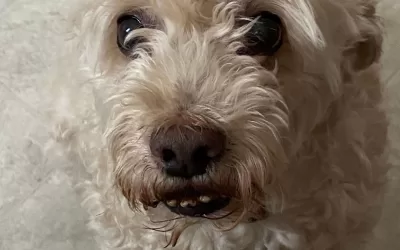
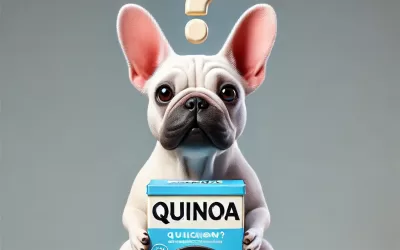



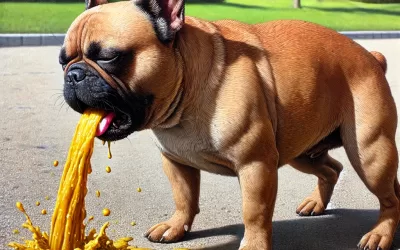

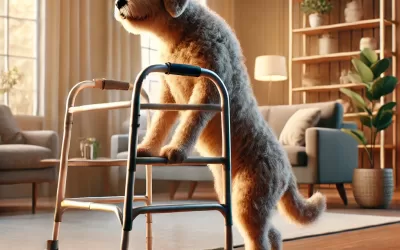
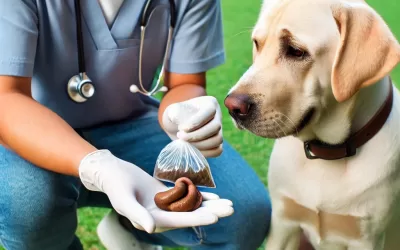

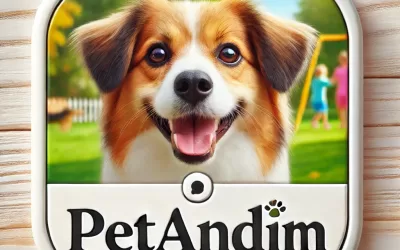
0 Comments